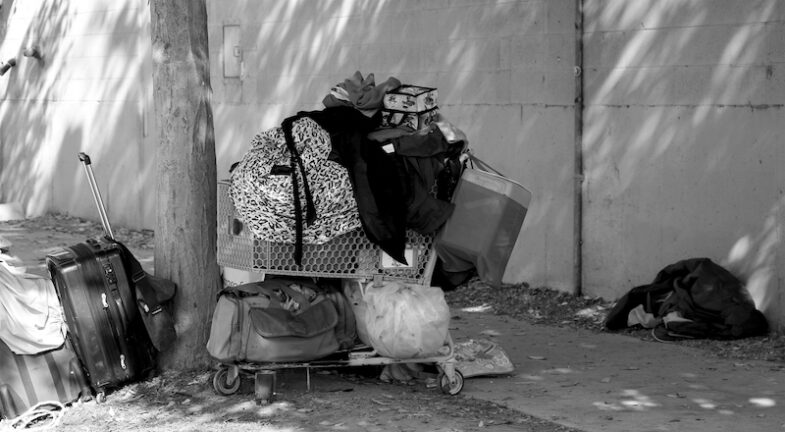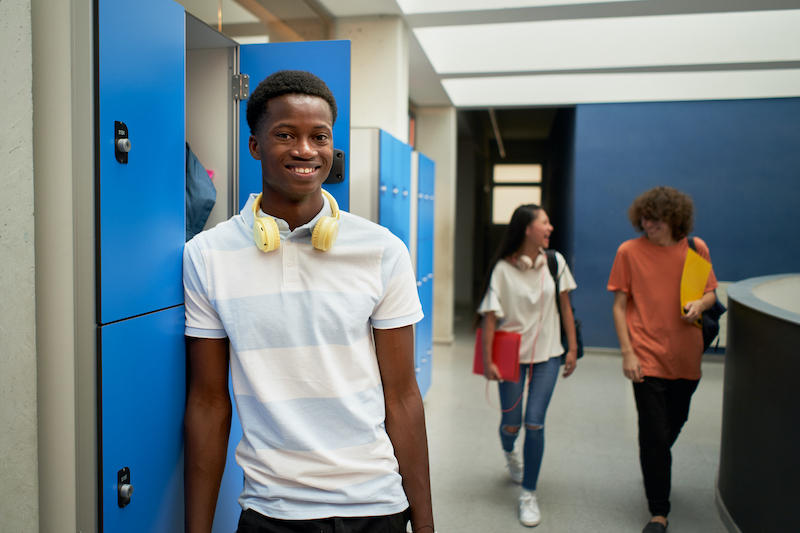In the United States, statistics show that more than half a million people experience homelessness on any given night. Today more than ever, there is a shortage of housing units that low-income people can afford. As the gap between income and housing costs grows, more people face homelessness.
Unity Parenting and Counseling recognizes that homelessness is rampant in Illinois. In order to understand the best way to fight homelessness in Illinois, it is important to first understand the statistics surrounding homelessness in Illinois. Then we will offer some solutions to best fight homelessness in Chicago.

Illinois Homelessness Statistics
The National Alliance to End Homelessness recognizes that homelessness is a problem in Illinois. From data that they collected in 2019, the National Alliance to End Homelessness makes the following observations:
- 10,643 Illinoisians experienced homelessness in 2018.
- Of those, 82% were sheltered and 18% were unsheltered.
- 6,752 were individual adults.
- 3,891 were people in families.
- 684 were individual youth.
- 804 were veterans.
- 1,625 were chronically homeless.
- There are approximately 8 homeless people per 10,000 people in the general population statewide.
- Chicago has the highest rate of homelessness in the state.
- 5,540 people are homeless on a given night.
- There are approximately 21.8 homeless people in Chicago per 10,000 people in the general population.
Unity Parenting and Counseling recognizes that homelessness is a huge issue in Chicago and we are working towards rectifying it, particularly within the homeless youth population.
Solutions for Ending Homelessness in Chicago
Unity Parenting and Counseling acknowledges the dire need for homeless support services for youth in Chicago. We actively contribute to the Continuum of Care (CoC) in Chicago.
There are four necessary parts to the Continuum of Care.
- Outreach, intake, and assessment in order to identify service and housing needs and provide a link to the appropriate level of both.
- Emergency shelter to provide an immediate and safe alternative to sleeping on the streets, especially for homeless families with children.
- Transitional housing with supportive services to allow for the development of skills that will be needed once permanently housed.
- Permanent and permanent supportive housing to provide individuals and families with an affordable place to live with services if needed.
In addition to providing a continuum of care for those who are experiencing homelessness, there is a myriad of solutions we can employ to end homelessness in the United States.
Here are some solutions to end homelessness.
Provide Housing

In order for persons or families to access the support services they need to achieve stability, recover, and pursue personal goals, they need stable housing.
- Supportive housing, such as Unity Parenting and Counseling’s Umoja Village, is a proven means of reintegrating people experiencing chronic homelessness and other highly vulnerable groups such as homeless youth with disabilities into the community by addressing their basic needs for housing and providing ongoing support.
- Rapid re-housing, such as Unity Parenting and Counseling’s Ujima Stars Joint TH/RRH, is designed to help individuals and families quickly exit homelessness and return to permanent housing. Ujmia Stars provides housing and support services to homeless youth, ages 18-24, including singles and youth-headed families.
- Affordable housing, such as Unity Parenting and Counseling’s Housing Advocacy Program (HAP), offers assistance to households with low incomes. The Housing Advocacy Program assists biological parents who are close to reunification with their children. Parents who need adequate, safe, and stable housing to facilitate reunification may be eligible for HAP services. HAP also helps youth who are “aging out” of foster care by offering them income assistance and other resources so that they won’t face homelessness after leaving foster care.
Integrate Health Care
People who are experiencing homelessness must have access to comprehensive health care. An integrative healthcare plan helps treat and manage chronic health and behavioral health conditions that often affect a person’s ability to stay housed and achieve their personal goals.
Unity Parenting and Counseling offers a full range of support services and healthcare services to our clients. We offer health services directly and through community linkages. We even offer much-needed permanent housing programs for special populations such as individuals or families headed by homeless disabled individuals.
Focus Hope I and Focus Hope II are innovative programs that provide homeless individuals and families with disabilities with safe and secure housing on Chicago’s South Side.
Strengthen Crisis Response Systems
An effective crisis response involves coordinating and reorienting programs and services and emphasizes rapidly connecting individuals and families to permanent housing while mitigating the traumatic effects of homelessness.
Unity Parenting and Counseling’s Ujima Village offers overnight shelter for homeless youth, ages 18-24, and is located on the border of Greater Grand Crossing and Englewood. Ujima Village offers temporary housing, food, personal hygiene, security, connectivity, mobility, and youth engagement. Ujima’s philosophy stresses building strong and trusting relationships with youth. Our services can help prevent life on the streets.
Foster Education Connections

Schools can be a lifeline for children and youth who are experiencing homelessness. They provide safety, stability, and a connection to the community that can help mitigate the impact of homelessness.
Through our Student Emergency Fund, Unity Parenting and Counseling provides small grants to homeless college students who are experiencing a crisis or transition where timely financial assistance would support them towards college graduation.
Build Career Pathways
One of the most effective ways to support individuals as they move out of homelessness and into permanent housing is to increase access to meaningful and sustainable job training and employment.
With Unity Parent and Counseling’s Harmony Village, homeless, unaccompanied youth have access to a variety of services that can help prepare them for a successful life.
Harmony Village houses and serves both single and parenting youth. Harmony is one of the few resources for pregnant and parenting youth, particularly on Chicago’s underserved South Side.
Harmony Village is the only Chicago youth housing program that serves young couples and their children.
We provide a range of services, including:
- Case management.
- Life skills training.
- Employment preparation and placement.
- Educational services.
- Parent coaching.
- Mental health counseling both on-site and in the community.
Our program also focuses on enhancing youth income, particularly preparing and linking them to employment with a career focus and path.
Best Ways to Fight Homelessness in Chicago
Unity Parenting and Counseling offers programs and services to families in need in Chicago. Unity’s programs and services are designed to meet the needs of persons, populations, and communities who are underserved and ignored. Unity’s goal is to support each person in achieving stability. Donate to Unity Parenting and Counseling today to help support our mission.